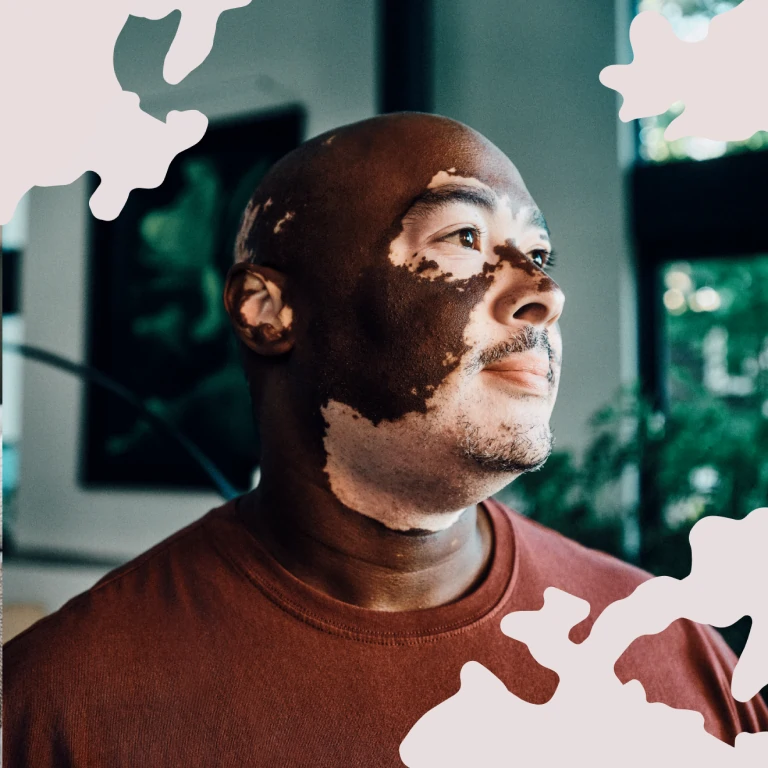

How can I talk about it?


Do you or your loved one experience a range of emotions about vitiligo? You’re not alone. Vitiligo can trigger many different emotions.
Expressing your feelings and emotions can make a real difference for you, your friends and family, and other people living with vitiligo. It’s also a great way to make sure you get the support you deserve from your healthcare provider.


Whether you naturally tend to keep your feelings in, or simply don’t want your loved ones to worry, being hesitant is normal. Talking openly and honestly with your loved ones about your condition and explaining how you feel could help them provide the support you deserve.
It’s important to give them the chance to express how they’re feeling and ask the questions they’re wondering about. There’s a community here ready to help support both you and your loved one to find the answers they’re looking for.


This is a big one: You’ve got to be honest and open with healthcare providers because it may be the only way they really know what’s going on.
Tell it like it is and they'll be able to work with you to manage your vitiligo together. Remember, you can start and lead the conversation about your vitiligo at any time.
If you haven't seen a dermatologist about your vitiligo in a while, or haven't seen one yet, think about scheduling an appointment. With this tool*, you could virtually connect as soon as today.
*Incyte has engaged Populus, a telemedicine marketplace, to enable patients to consult healthcare providers virtually. All providers make independent prescribing decisions and are not paid by Incyte.


If you’re looking for additional information or support check out these advocacy groups.
Incyte Corporation is not affiliated with these organizations but has provided funding for some of their educational programs. This is not a complete list of organizations within the vitiligo community and being listed here should not be considered an endorsement of any particular organization.
You are about to leave ThisIsVitiligo.com
You will now be directed to another website that is not maintained by Incyte Corporation. Please note that Incyte is not responsible for the content on this site.
Are you sure you would like to leave the ThisIsVitiligo.com website?